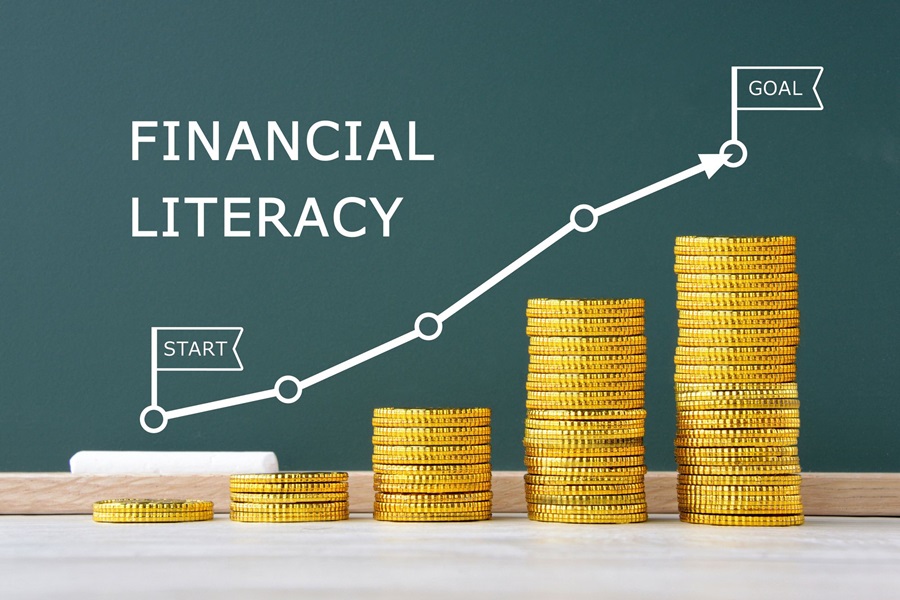
Published :
Updated :

Imagine someone just got paid their month's salary. And they decide to celebrate by going to a costly restaurant with friends or colleagues. But then that person thinks about last month, which went poorly because of the lavish spending spree at the beginning of the month.
Now, what should one do? Does that person ignore that instinct and go to expensive restaurants anyway? Or should they consider being responsible for their finances now?
Financial responsibility is a step forward towards financial independence, where people can go to an expensive restaurant and be sure that they won't have to struggle through the last few days of the month; they can be free of these thoughts because that person has already figured out the mechanisms of finance.
The essence of financial independence is not to constantly worry about paying the bills. People often confuse this with having much money in their bank account. The problem with this thinking is that money's most crucial characteristics are desire and spending capability. So, all that money in one's bank account can quickly be gone if not managed wisely. So, financial independence means having enough knowledge about money so that someone can make their 100 into 100k and 100k into 1000000, not by working for money but rather by making money work for them.
Financial literacy generally means understanding how money works for people. It also includes basic things, such as managing a daily budget, understanding individual spending limits, avoiding debt, having emergency and medical funds, planning for the future, saving money, knowing about various plans provided by banks and which plan to choose according to one's current situation, etc.
Not only that, but people with enough knowledge of finance can point out scams and bogus offers. We often receive e-mails saying that we somehow won a lottery without even applying for one and must pay a small fee to collect the prize. This, right here, is a con trick. But people are getting scammed very often in these sorts of shakedowns.
When people become financially literate, they'll be able to understand that just because someone uses or eats something every day doesn't necessarily mean they have to buy that product even when the price has doubled.
They recognize the importance of aligning their lifestyle with their financial situation, realizing they must either adapt their spending habits or improve their economic standing. Either way, having two still variables is impossible; one has to change for the other.
A lack of financial literacy leads to clouded judgment in all money-related issues. From there, it's a slippery slope from wrong decisions in daily expenditures to bad choices in significant life-changing investments. And then there's crushing debt and poverty.
A person must understand finance to become financially stable and economically independent. Another big obstacle to financial independence is some superstitious or 'Grapes are Sour' thinking in our societies.
In a society where money is seen as the root of all evil or as the dirt of the hand, it is understandable why that society is not economically advanced. But this only means this society and its people need more financial literacy.
Savings can go quite a long way, but if you can add the spices of suitable and profitable investments, you can see your money flow quite literally. Unfortunately, many people go wrong when it comes to saving and investing. People need to set their priorities straight. There are a lot of examples in Bangladesh that indicate that.
There are people in rural areas, even in the cities, who work their whole lives and save a few. But at the end of the day, they spend it all on their daughter's or son's wedding or as a dowry to their daughter's in-laws.
Financial literacy levels need to be improved in developing countries worldwide. According to the Financial Inclusion Insights (2018) Program by Intermedia Research, Bangladesh's financial literacy rate is 28%, which is extremely low for a country trying to become a developed country with a per capita income of more than 12.5 thousand US dollars by the year 2041.
Until 2023, economics was included as an optional subject from the ninth standard in our education system. Finance was a subject only for the Commerce group, starting in the ninth grade. The new curriculum has no subject related to financial literacy in the school education system. Economics and finance are included in the college curriculum but only in some groups. Somehow, the education system has decided that not everyone should have a clear idea about money! How do we expect our citizens to clearly understand their finances when we don't even teach it at the school level?
When financially literate, people can make informed decisions, invest in the right places, and build a better future for themselves. This doesn't just facilitate the person; it also ensures the growth, stability, and prosperity of his/her country. That's why it is unrealistic to think that economic development is only possible with proper financial literacy among citizens.


 For all latest news, follow The Financial Express Google News channel.
For all latest news, follow The Financial Express Google News channel.